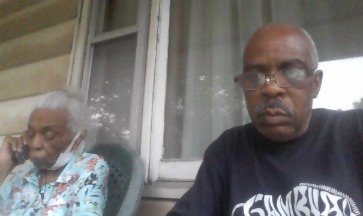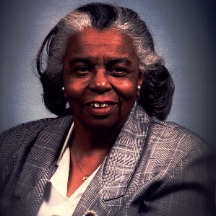Since the Civil War, my family has lived in St. Francis County, Arkansas until my parent’s generation migrated north. However, they moved in groups; thus, they continued to benefit from having extended family nearby.
My generation was the first to singularly scatter, with my sister Grace in south suburban Chicago, Willa in Baltimore, my younger brother, Derrick, in Jacksonville, Florida; and me in Washington, DC. Adjustments were made, but our first immediate family crisis tested our ability to handle problems across the miles.
It began with Grace calling us and saying, “Mom went to the doctor for a mammogram. They found a lump in her breast and don’t know if it is cancerous.” With anger plunging her voice, she continued, “And, I don’t know why Mom waited five years to have another mammogram – even though I asked her continually if she had gone each year.”

Our 68-year-old mother knew she needed a mammogram each year and scrambled for a response to my sister’s frustration. “The earlier mammogram felt uncomfortable and when they pulled and flatten my breast against those plates,” she explained, “I don’t know if they have now have better machines, but the latest mammograms didn’t hurt.”
To verify the results of the mammography, my mother’s doctors did a needle biopsy to remove fluid and some tissue from the lump for testing. “The biopsy was not painful,” my mother told us about the two-hour procedure. However, a week of waiting passed before the doctor had results.
Me, my siblings, and my mother all reacted to the crisis in different ways.
“My biggest worry was of her being in pain or even dead without us knowing,” said my brother, a Navy cook, “I wished I had the money to move her here so I could protect her.” Willa, a former occupational therapist-turned homemaker, said, “My concern was her going through the crisis alone, so I called her more frequently, especially before and after doctors’ appointments.”
Though our father had passed away when I was twelve, for me the idea of living without a parent became a frightening and strange notion. “How does it feel not to have a living mother?” I probed friends.
Mom, who can be emotional, remained calm and relied on faith. “I prayed that if it’s God’s will that I have cancer, that he also gives me the strength to accept it,” she says.
In retrospect, Grace, an x-ray technician, learned not to always accept mom’s response at face value, just as she doesn’t with her patients. “Working in a profession that encourages getting mammograms, I was shocked that I had to remind my own mother of its importance.”
Luckily, mom’s tumor was not cancerous, and she learned the importance her health and life has on others.
“Knowing early probably will add years to my life. However, the experience, especially having alarmed my children and having their support made me more humble,” she remarked. I will have a mammogram again, just as a precaution” she said faithfully.
Note: Well, it may have added 24 additional years to her life - 24 years to happily sit on her porch. Her mantra was that she wanted to do for herself and live in her house as long as she could. And, that she did. The second photo is her and me sitting in one of her most favorite spots, the front porch, the last evening at her home before she got sick.








